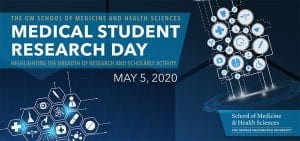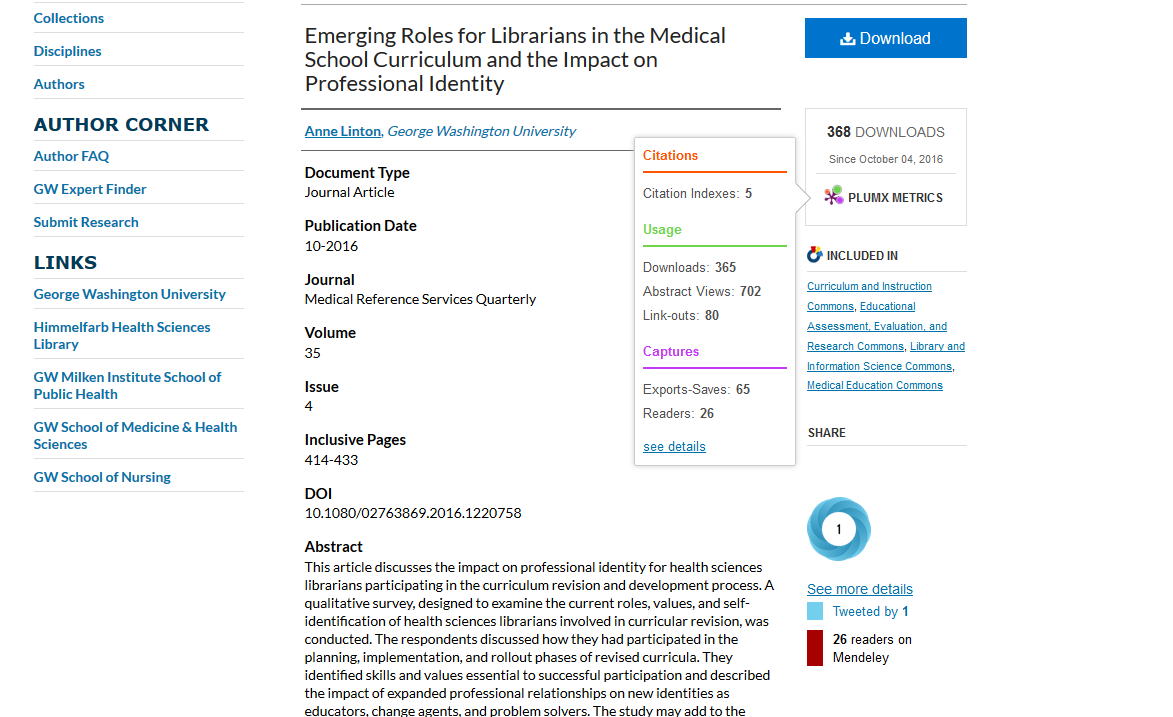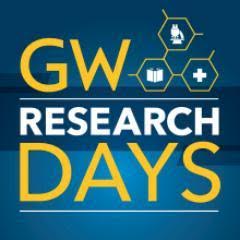
The 2019-2020 academic year was a period of extensive growth for our institutional repository, the Health Sciences Research Commons (HSRC). Despite the COVID-19 pandemic uprooting our normal way of life, medical researchers have adjusted to the interruption to their workflow and publication output remains strong. As we settle into a new academic year, let’s take a moment to reflect on some of the HSRC’s highlights from last year.
From September 2019 to August 2020, over 13,000 entries were added to the repository and publications within the HSRC were downloaded over 123,000 times. Articles were accessed in 191 different countries, meaning publications within the HSRC were read by a diverse population. Through the use of Plumx Metrics and Altmetrics, researchers and published authors can easily track the level of engagement their entries receive and any social media mentions. Though we’re only a month into this near academic year, new entries have been added to the HSRC and it continues to serve as a valuable asset to researchers and scholars in various stages of their careers.
In response to the growing body of medical research and literature on the COVID-19 pandemic, a separate collection was established within the repository to shine a spotlight on GW faculty members and affiliated researchers who have published work pertaining to this current pandemic. This special collection was established in the summer of 2020 and since then has collected nearly 100 relevant publications. At the time of writing, the ‘COVID-19 Publications by GWU Authors’ collection has gathered 93 publications and continues to grow with each passing week.
As we continue to settle into this new school year, the staff at Himmelfarb Library are here to help you archive and promote peer-reviewed articles, conference posters/presentations or other scholarly publications. We’re eager to see how the HSRC continues to grow this academic year and in subsequent years. Feel free to explore the collections within Health Sciences Research Commons at https://hsrc.himmelfarb.gwu.edu/. If you have published an article/poster/presentation/or other scholarly publication and would like to add it to the repository, please send an email to hsrc@gwu.edu. If you have any additional questions about the HSRC, please email Sara Hoover, the Metadata and Scholarly Communications Librarian at shoover@gwu.edu.








 Looking for a way to increase and track the reach of your research?
Looking for a way to increase and track the reach of your research? A new Doctor of Nursing Practice (
A new Doctor of Nursing Practice ( You put all that hard work into preparing and presenting your poster at Research Days....don't let it sit in a closet! Archive a digital copy in Himmelfarb Library's
You put all that hard work into preparing and presenting your poster at Research Days....don't let it sit in a closet! Archive a digital copy in Himmelfarb Library's 